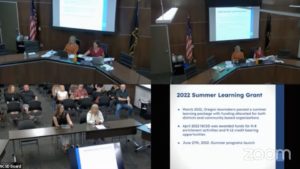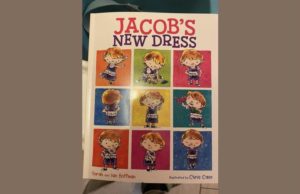52 books pulled and 32 more under review at Utah’s largest school district
After parents’ complaints about inappropriate sexual content, a school district in Utah has removed 52 books from the school library and will conduct an internal audit of the material.
Another…

After parents’ complaints about inappropriate sexual content, a school district in Utah has removed 52 books from the school library and will conduct an internal audit of the material.
Another 32 books that parents have complained about in the Alpine School District will be reviewed after the school board drafts guidance on its process and inspects the first 52, according to the Salt Lake Tribune.
Parents’ concerns over the books speak to a culture war happening around the country, in which explicit sexual content is being made available in public school systems, often to young students.
Free speech advocates argue many of the titles on the review list in the Alpine District are about “historically marginalized groups” and that it feels like an “effort to silence those voices.”
But Alexandra Schweitzer, who actually was threatened with the silencing of her voice, knows that’s not true. Her Wisconsin school district sent the concerned mother a cease-and-desist letter in May threatening to sue her for defamation if she continued questioning the district and its sexually inappropriate materials. The district sheepishly ended the matter after receiving a letter from the Wisconsin Institute for Law and Liberty on her behalf.
She has a right to free speech. Book authors do too – but they have no such First Amendment right to have their books in public schools no matter the content.
“Stopping minor children from accessing highly sexualized material their young minds are not equipped to process is hardly a First Amendment issue,” Schweitzer told The Lion Thursday. “It’s a parental rights issue. Parents must not be excluded from this conversation. Any parent can go out and buy whatever book they want. No bureaucrat has the right to deliver pornographic material into the hands of young children behind the parents’ backs.”
“We’ve not had a book burning or anything,” Alpine spokesperson David Stephenson assured the Tribune. “But we are being proactive with the ones we’ve heard concerns about.”
Books that have been taken from the shelves for further investigation include “Queer: The Ultimate LGBTQ Guide for Teens,” which recently came under scrutiny and sparked debate in a Louisiana school, according to The Advocate newspaper in Baton Rouge; and “Gender Queer: A Memoir,” which The Tribune describes as an author’s “journey of self-identity that has some scenes of illustrated figures engaging in sexual conduct.”
The book description on Amazon for “Gender Queer: A Memoir” includes the following:
In 2014, Maia Kobabe, who uses e/em/eir pronouns, thought that a comic of reading statistics would be the last autobiographical comic e would ever write. At the time, it was the only thing e felt comfortable with strangers knowing about em.
Now, Gender Queer is here.
Maia’s intensely cathartic autobiography charts eir journey of self-identity, which includes the mortification and confusion of adolescent crushes, grappling with how to come out to family and society, bonding with friends over erotic gay fanfiction, and facing the trauma and fundamental violation of pap smears.
Complaints about the reading material, the Tribune writes, come from a “conservative parent group” called Utah Parents United. The group’s website says its aim, in part, is merely to “protect the parent-child relationship in law and education.”
In an interview with ABC4 in Salt Lake City, Corinne Johnson, public relations director at Utah Parents United, called the investigation into these books “a win for children.”
But a recent Facebook post by her group claims that things were left out of the broadcast interview that fair reporting might have included. The post links to the ABC4 article, along with the group’s passionate criticism of the media:
“The next time I’m asked to do a news media interview I’m just gonna send them excerpts of the porn. I’m tired of them making this about discrimination and the LGBTQ+ population, because it’s not.”
The post goes on to say that “reasonable” people do not want overly sexualized content in schools, and says “LGBTQ+ kids deserve to read good literature [that’s] not riddled with graphic depictions,” and that the books in question are not positive or wholesome and are causing psychological damage.
The Tribune reports Utah lawmakers have clashed with anti-censorship advocates and librarians, and in response lawmakers passed HB374, which bans “pornographic or indecent” books in Utah schools.
Last month, in response to HB374, the Utah Board of Education approved a “model policy” that includes the following guidelines for registering complaints about inappropriate content in the library, as reported by the Daily Herald:
- Material reviews may be requested by students, parents of students, or employees of the school.
- The identity of those making requests is kept private.
- Materials under review will be available from the circulation desk with parental permission (or via access code for digital items).
- Restricted materials will be publicly listed.
- A review committee will ultimately determine whether material is retained without restriction, restricted with limited access, or removed entirely.



